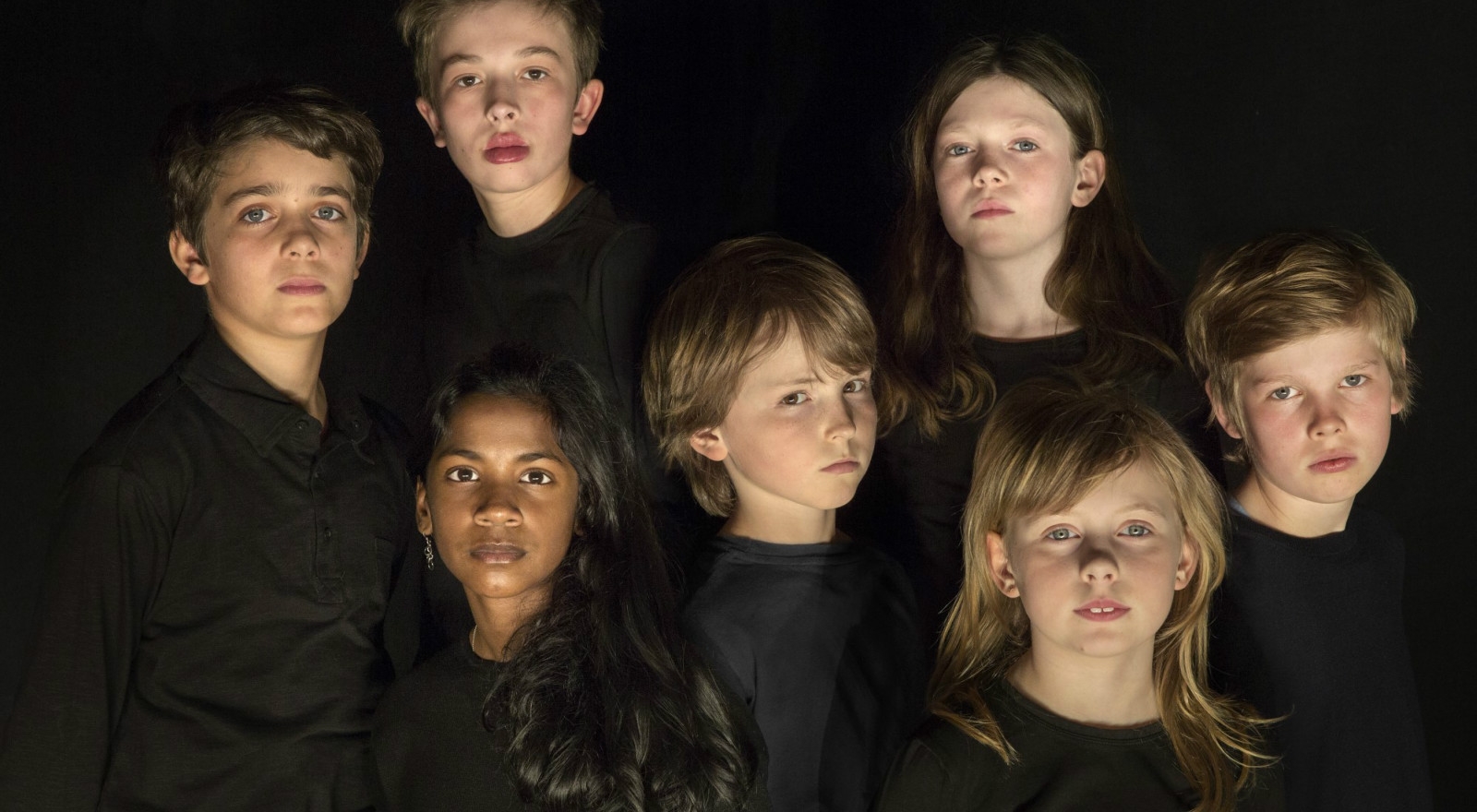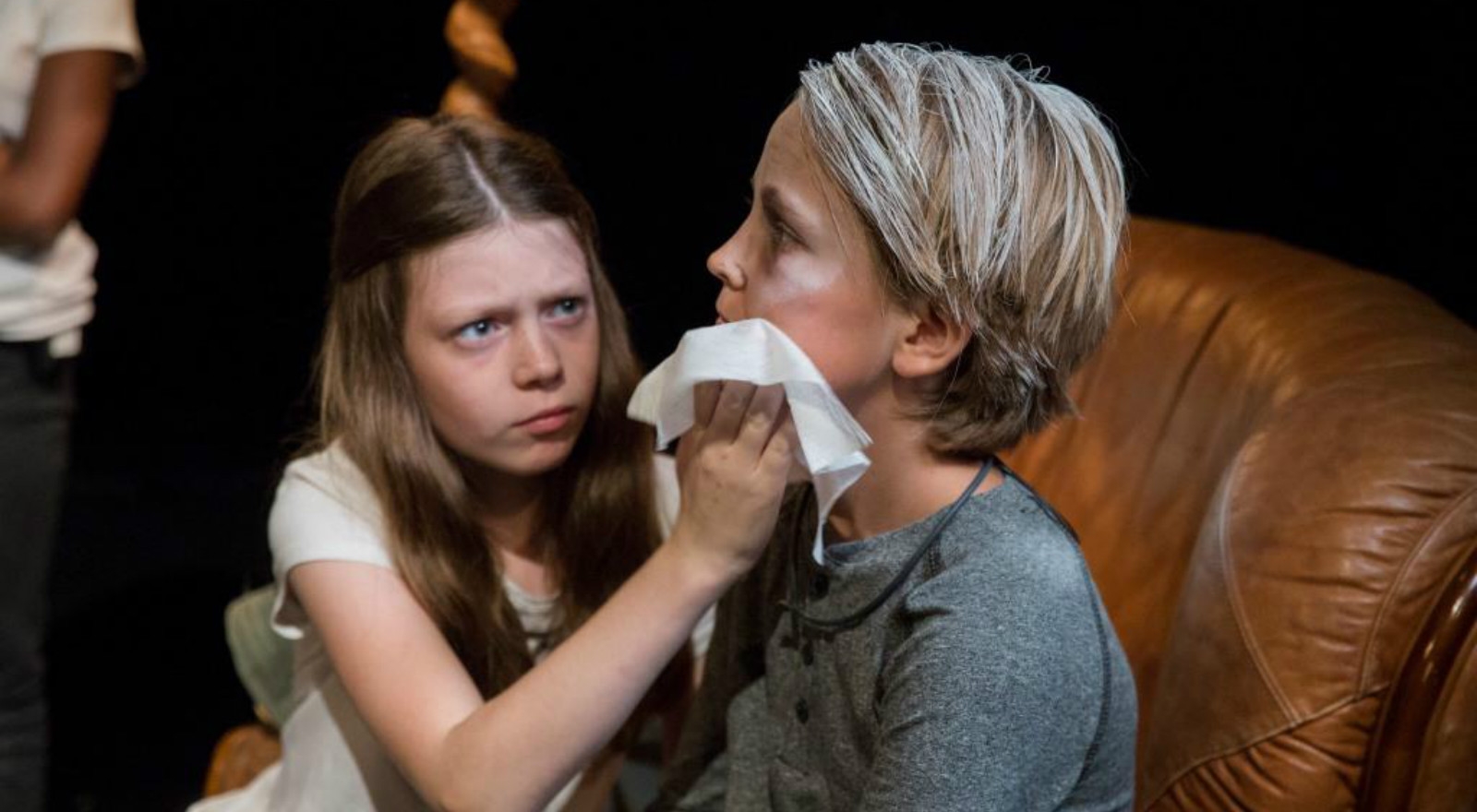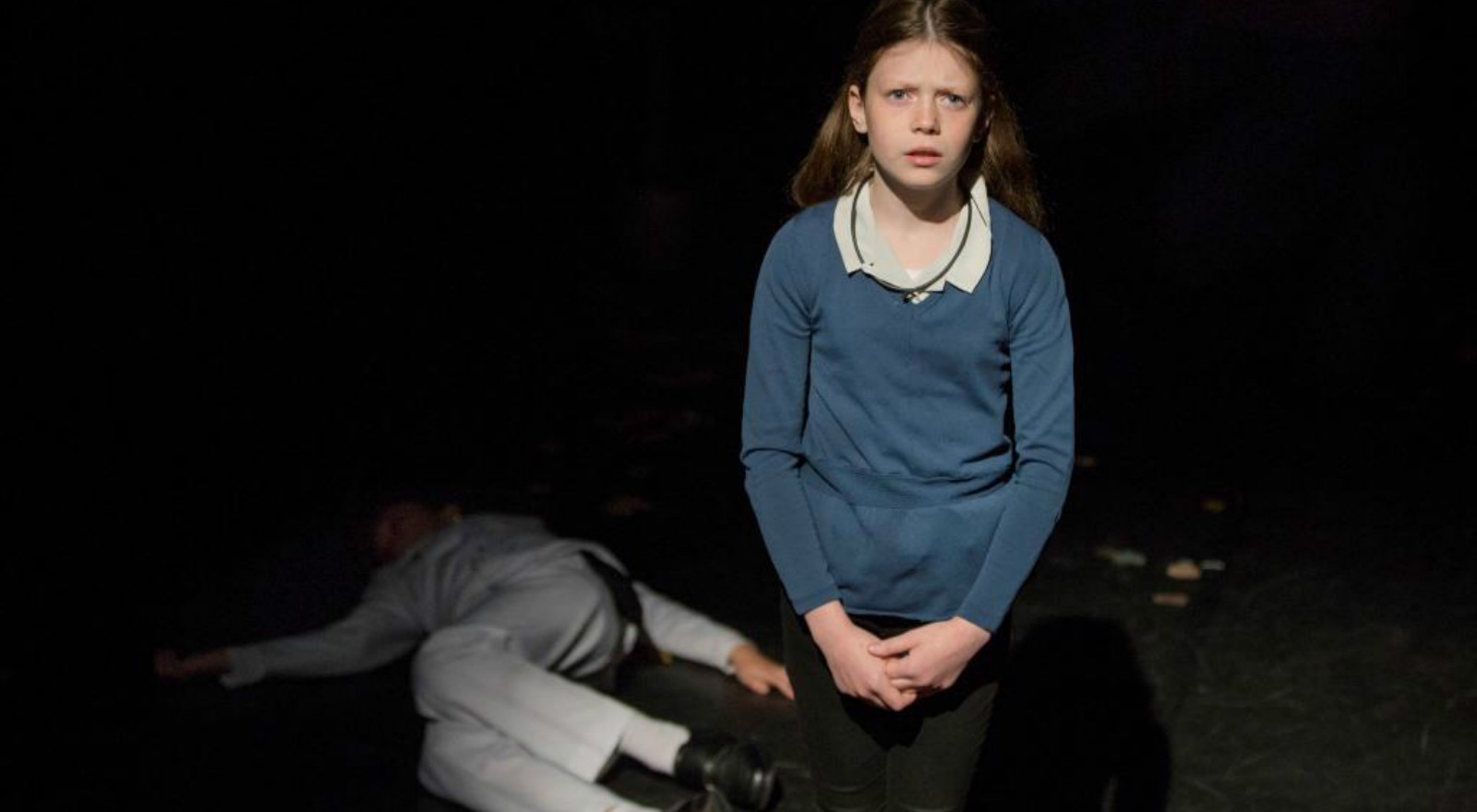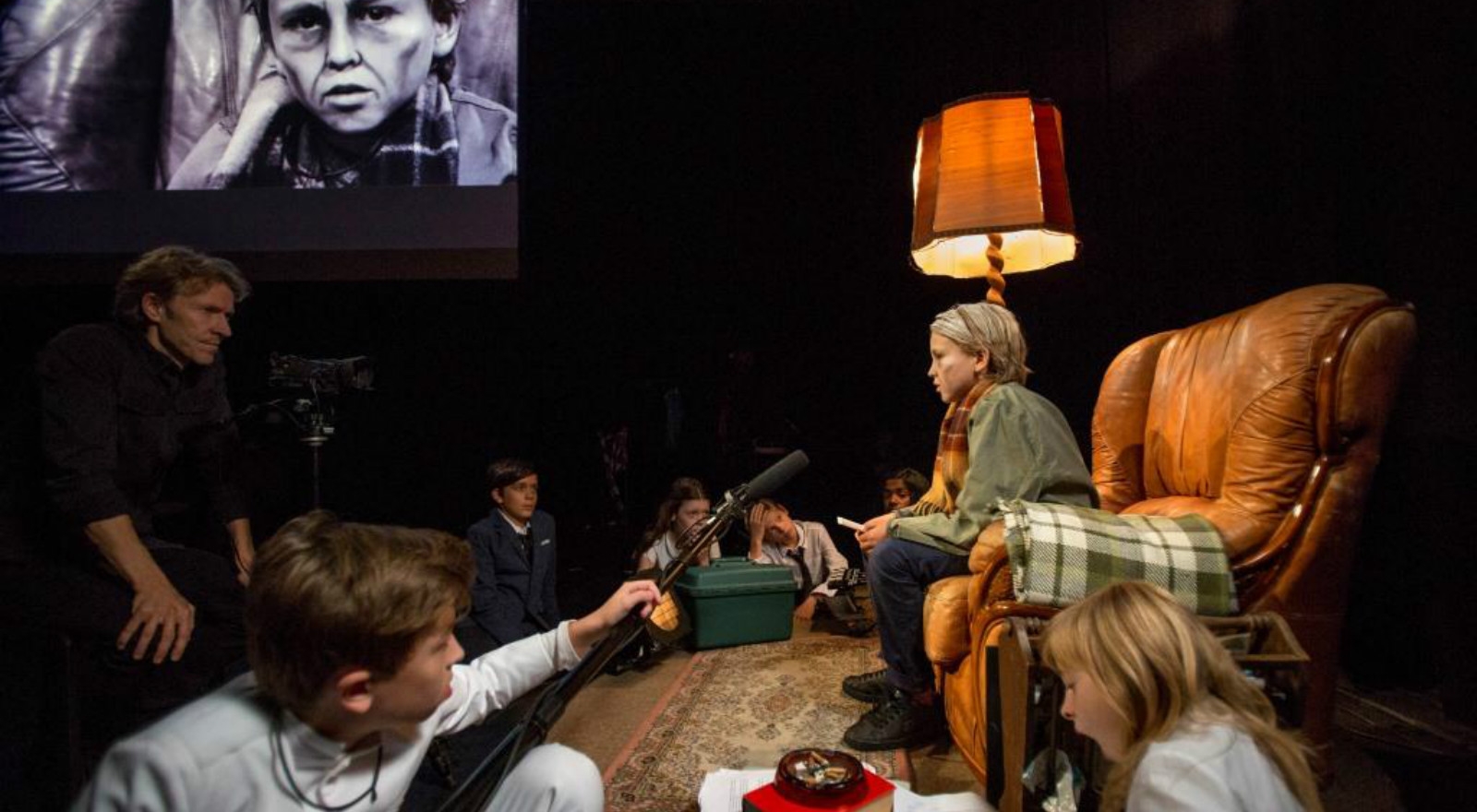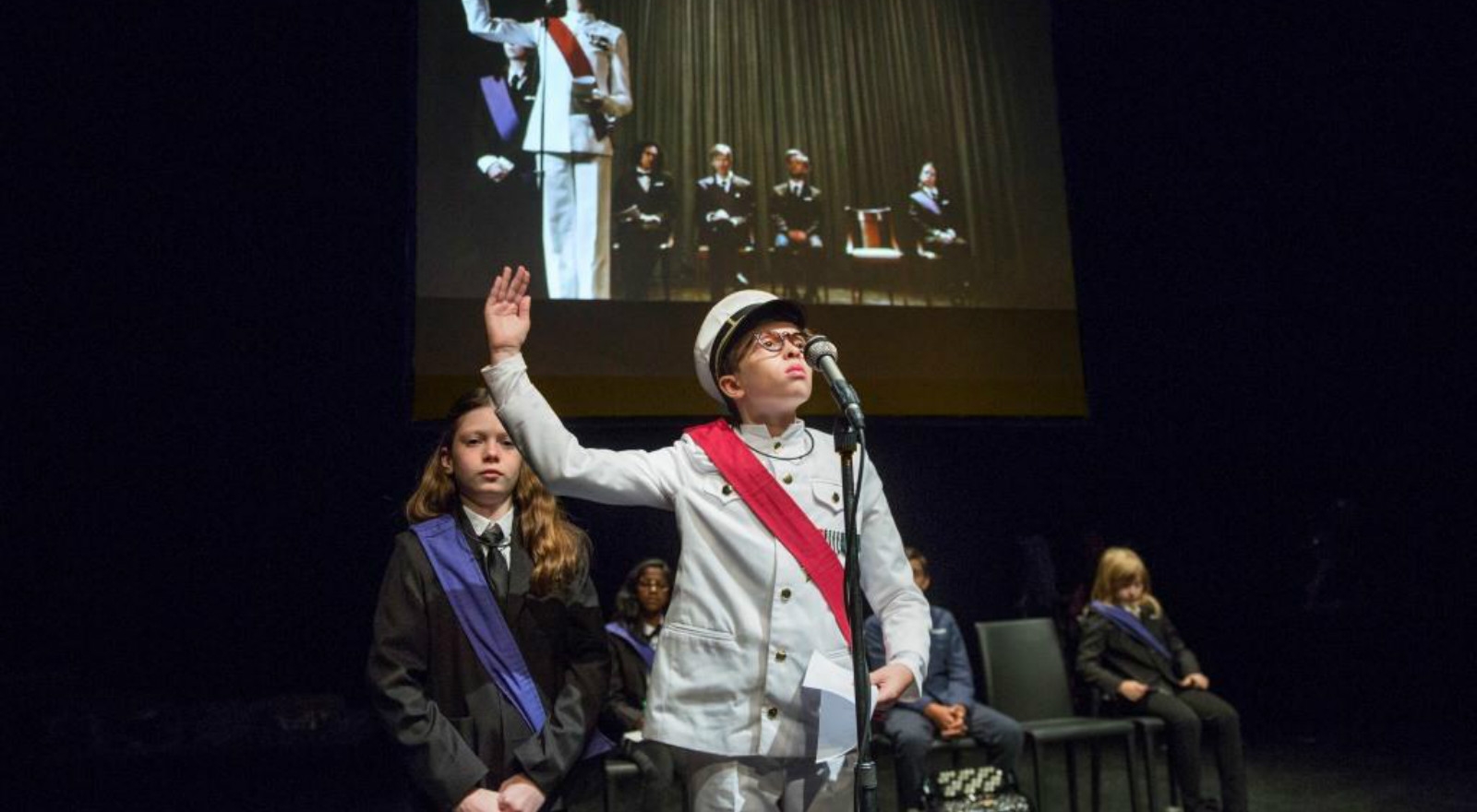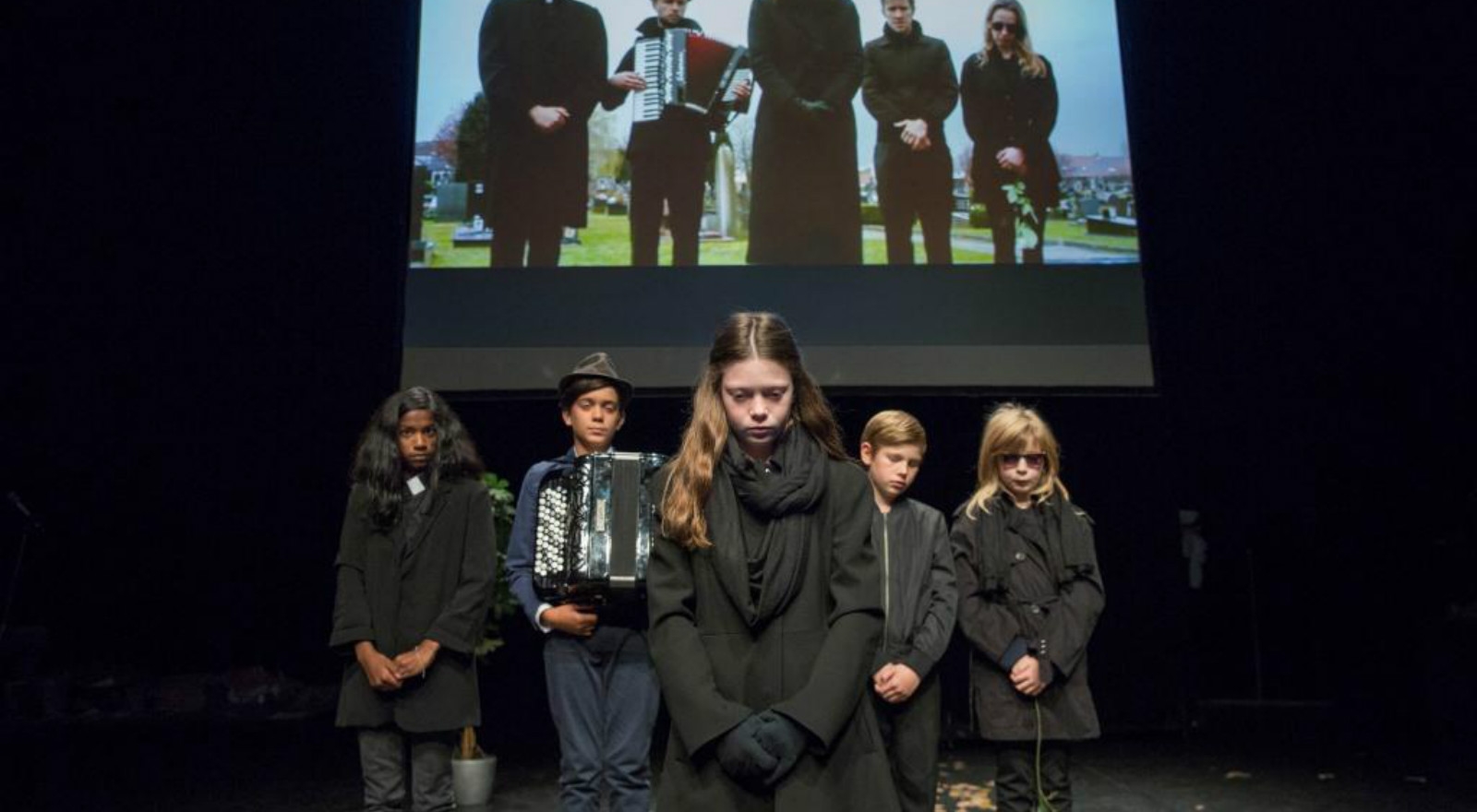Five Easy Pieces
Milo Rau / IIPM / CAMPO
Is it possible – and with which means – to perform the life of child killer Marc Dutroux with children? Swiss theatre director Milo Rau and his International Institute of Political Murder (IIPM) have conquered the biggest international stages in recent years with their matchless political theatre. Their works are based on testimonies and reconstructions of true stories and mercilessly break through the taboos of our age. Together with the CAMPO arts centre from Ghent, they have set up an ambitious project involving children and teenagers between 8 and 13 years old. Rau uses the biography of the country’s most notoriously shameful criminal to sketch a brief history of Belgium and to reflect on the (re)presentation of human feelings on stage.
Five Easy Pieces probes the limits of what children know, feel, and do. Purely aesthetic and theatrical questions blend together with moral issues: How can children understand the real significance of narrative, empathy, loss, subjection, old age, disappointment, or rebellion? How do we react if we see them acting out scenes of violence or love and romance? In particular, what does that say about our own fears and desires? This makes for a confrontational experience.
With Five Easy Pieces, the IIPM subjects its aesthetic appreciation of realism and brutality to a theatre study. Together with CAMPO, appreciated all over Europe for their children and youth theatre productions such as That Night Follows Day (Tim Etchells, 2007) and Before Your Very Eyes (Gob Squad, 2011), the production Five Easy Pieces focuses on the life and crimes of Marc Dutroux and thereby on the various taboos and sore points of both personal and political life.
In five exercises of utter simplicity, short scenes and monologues for the camera, the young actors sneak into different roles: a police officer, Marc Dutroux’s father, one of the victims, or the parents of a dead girl. They adopt their role and fate via the re-enactments which they’ve rehearsed together with adult actors: a visit to the scene of the crime, a funeral ceremony, an everyday scene from the life of Marc Dutroux’s father. On the one hand, this unfolds a historical panorama of Belgian history, from Congo’s declaration of independence to the mass demonstration of the ‘White March’. On the other hand, the production considers the limits of what children know, feel, and are allowed to do. What does it mean to observe them in these scenes? And what do we then experience as regards our own fears, hopes, and taboos?
One hundred years ago, Igor Stravinsky wrote his Five Easy Pieces as an educational tool to teach his children to play the piano. With Seven Easy Pieces, Marina Abramović played some iconic moments of performance art. In Milo Raus’ Five Easy Pieces children are initiated in the emotional and political absurdities and bottomless pits of the adult world. What does it mean to involve children in adult theatre? What does that tell us about power and subjection, theatre and performance, and mimicry and humanity? Five Easy Pieces is an experiment in narrating pieces of history in five sets.
Read the interview with Milo Rau about the background to Five Easy Pieces
Prix de la critique théâtre & danse 2016 - Special jury award for Milo Rau
SelectionTheatertreffen 2017
3-sat award 2017 for Milo Rau
Selection National Dutch Theatre Festival 2017
Selection Het Theaterfestival Belgium 2017

press
credits
concept, text & direction Milo Rau text & performance (2 casts) Rachel Dedain, Aimone De Zordo, Fons Dumont, Arno John Keys, Maurice Leerman, Pepijn Loobuyck, Willem Loobuyck, Blanche Ghyssaert, Polly Persyn, Lucia Redondo, Peter Seynaeve, Pepijn Siddiki, Elle Liza Tayou, Winne Vanacker, Hendrik Van Doorn & Eva Luna Van Hijfte performance film Sara De Bosschere, Pieter-Jan De Wyngaert, Johan Leysen, Peter Seynaeve, Jan Steen, Ans Van den Eede, Hendrik Van Doorn & Annabelle Van Nieuwenhuyse dramaturgy Stefan Bläske direction assistant & performance coach Peter Seynaeve research Mirjam Knapp & Dries Douibi set & costume design Anton Lukas video & sound design Sam Verhaert child care Valentine Galeyn production assistant Ted Oonk music coach Herlinde Ghekiere voice articulation coach Françoise Vanhecke realisation scenography Ian Kesteleyn technical Bart Huybrechts, Korneel Coessens & Piet Depoortere second camera Alexander Van Waes sound video Henk Rabau production management Wim Clapdorp, Mascha Euchner-Martinez & Eva-Karen Tittmann tour management Leen De Broe sales management Marijke Vandersmissen production CAMPO & IIPM co-produced by Kunstenfestivaldesarts Brussels 2016, Münchner Kammerspiele, La Bâtie – Festival de Genève, Kaserne Basel, Gessnerallee Zürich, Singapore International Festival of Arts (SIFA), SICK! Festival UK, Sophiensaele Berlin & Le phénix scène nationale Valenciennes pôle européen de création executive production CAMPO
IIPM is funded by Senatsverwaltung für Kultur und Europa Berlin, Pro Helvetia, GGG Basel, Ernst Göhner Stiftung and Fachausschuss Tanz und Theater BS/BL (Basel).
CAMPO is supported by The Flemish Government, The Province of East Flanders & The City of Ghent.
